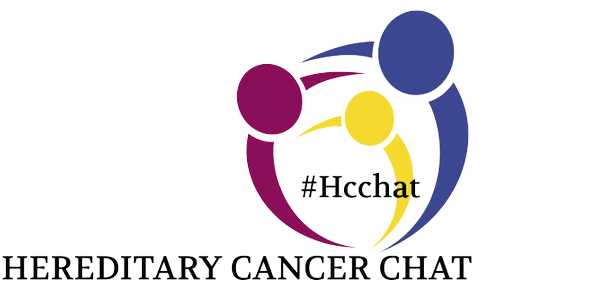Last week we held a Tweet Chat with our amazing co-hosts Georgia Hurst and Amy Byer Shainman, special guest Sharlene Hesse-Biber, PhD and host Ambry Genetics to discuss a very important issue in genetic testing: Who really has access? As always, the response from our community of patients, advocates and others was overwhelming. Here are the highlights of the conversation.
Do you think most people can afford genetic testing?
@Hc_chat#hcchat Q1: In clinical practice we found that many people who were uninsured had a difficult time affording testing.
— Ellen T. Matloff (@MyGeneCounsel) September 9, 2015
#Hcchat in Greece genetic testing is not covered by the major health insurance provider and most people can’t afford BRCA and LS testing.
— Emmanouil Saloustros (@esaloustros) September 9, 2015
@Hc_chat In the UK it is free on the NHS if you fit certain criteria, otherwise you can pay and prices varies #hcchat — BRCA Umbrella (@BRCAUmbrella) September 9, 2015
#hcchat Q1: Those who have insurance coverage have easier time. Those who have a high hereditary cancer risk in their family get tested
— Sharlene Hesse-Biber (@hessebiber) September 9, 2015
perception (sometimes true) that costs are prohibitive is a big issue #hcchat#genetictesting
— AliveAndKickn (@AliveAndKicknDD) September 9, 2015
What are the social barriers for the average person in regards to genetic testing?
@Hc_chat There is such a stigma in the African American community due to fear of what might be found. We don’t want to know. #Hcchat — Candace Henley (@colon_survivor) September 9, 2015
That crosses communities! Education & counseling is key to change. #Hcchathttps://t.co/cueGiJmp6j
— Troy Moore (@TroyMoore4141) September 9, 2015
Q3 People feel there is a stigma attached to having a mutation. #Hcchat — BRCA Umbrella (@BRCAUmbrella) September 9, 2015
A3 barrier for me has been the legwork/uncomfortableness of talking w/ all the family members about their or their parent’s cancer #hcchat
— Christina Lizaso (@btrfly12) September 9, 2015
#Hcchat Q3 Barrier…people simply don’t know where to go–that the best 1st step is a genetic counselor #geneticcounseling@GeneticCouns — Amy Byer Shainman (@BRCAresponder) September 9, 2015
@colon_survivor@MyGeneCounsel@Hc_chat : #hcchat Q3: I found those with higher education are more likely to get tested and do research.
— Sharlene Hesse-Biber (@hessebiber) September 9, 2015
Is knowledge power when it comes to genetic testing?
Q4: #Hcchat: Most #doctors are not adequately trained in #genetics to advise you about your test result. — Sharlene Hesse-Biber (@hessebiber) September 9, 2015
Q4 – No because you are stuck with a problem and no solution! Living proof! #LynchSyndrome#LSChat#HCCHathttps://t.co/CbnsoobGSL
— Lee (@NJIvorygirl) September 9, 2015
#Hcchat For me, knowledge about my #Hereditarycancer syndrome was power. I was able to take actions to save my own life. #BRCA — Amy Byer Shainman (@BRCAresponder) September 9, 2015
#Hcchat For me, knowledge about my #Hereditarycancer syndrome was power. I was able to take actions to save my own life. #BRCA
— Amy Byer Shainman (@BRCAresponder) September 9, 2015
Q4 Often people who do not qualify for free testing will pay & get no counselling. ..left with results they can’t interpret = fear #Hcchat — BRCA Umbrella (@BRCAUmbrella) September 9, 2015
Sharlene Hesse-Biber, PhD’s key takeaways:
- Carrying a positive genetic mutation does not mean you have cancer now or will die. Rushing to preventative surgery may be problematic.
- Genetic counseling is crucial to the genetic testing process.
- Even if you develop cancer it’s not necessarily a death sentence.
- Your particular mutation may hold implications for your treatment or clinical trials.
Read the full transcript here or search #Hcchat on Twitter. Have a question or comment you didn’t get to contribute? Please post in the comments below.
Don’t forget to follow us on Twitter and Facebook to receive notifications about upcoming discussions and other news. Also please follow our co-hosts @Shewithlynch and @BRCAresponder and guest Sharlene Hesse-Biber, PhD.


